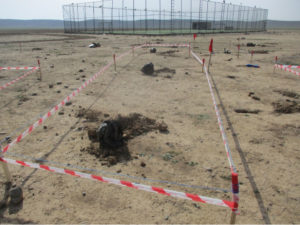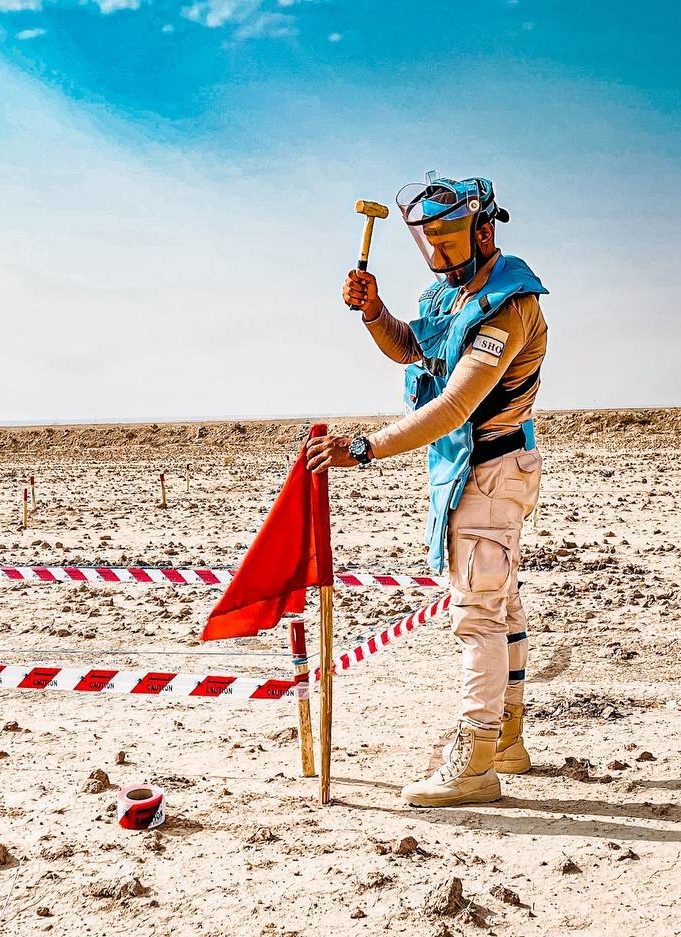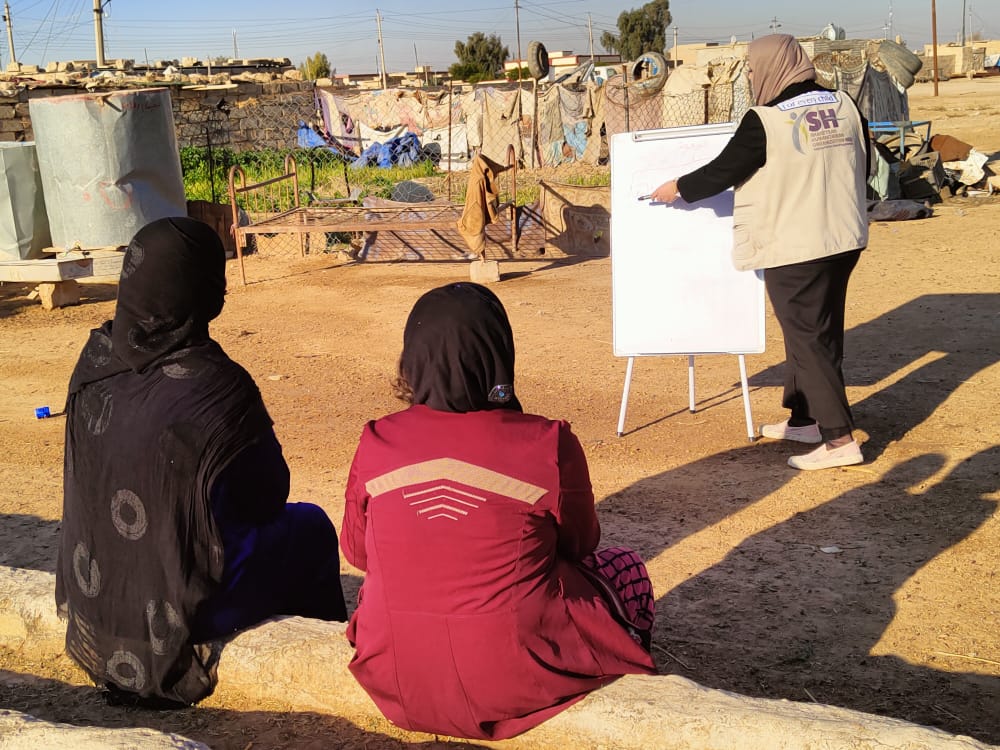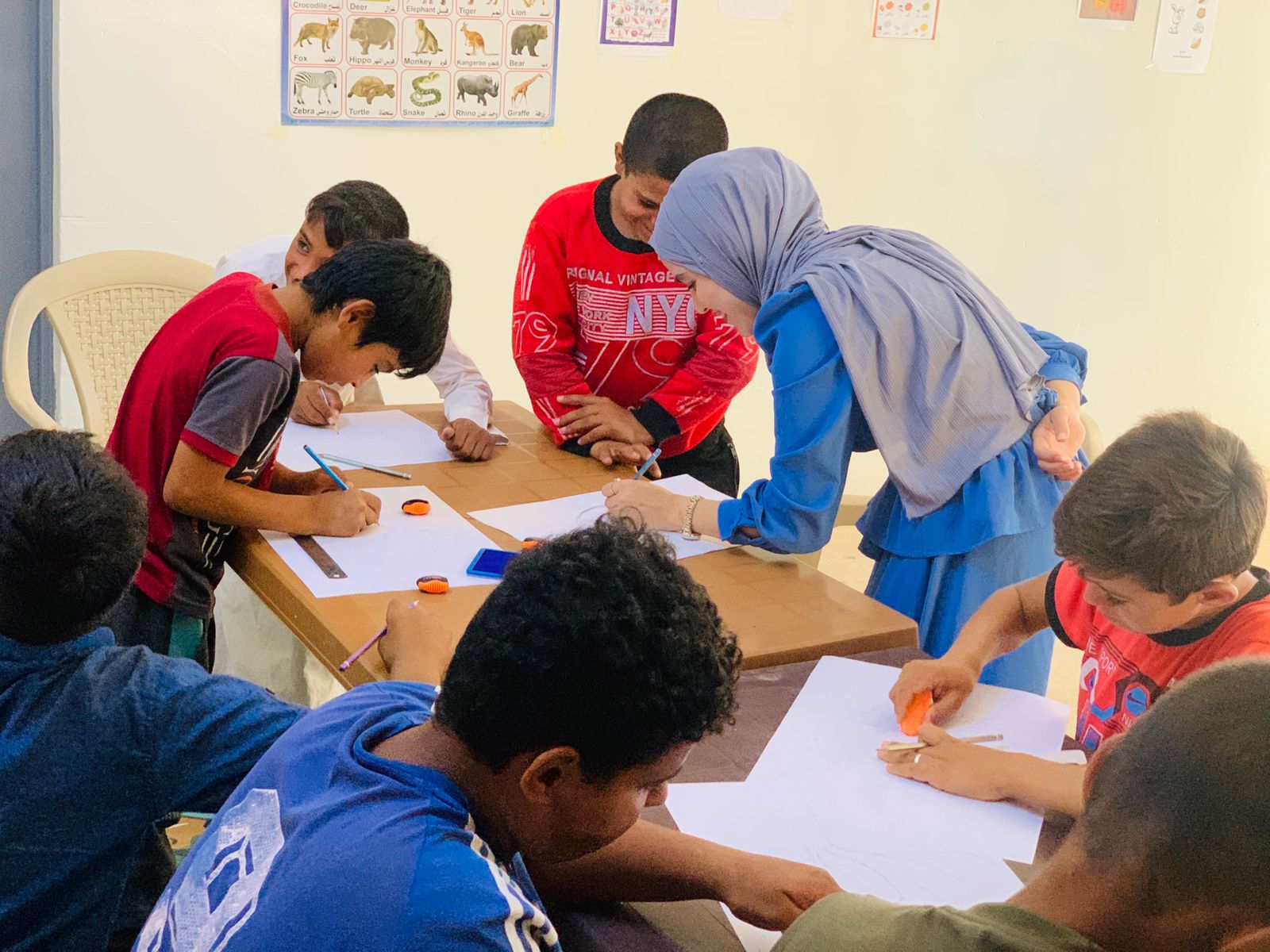
The village of Hashterlok, nestled within the Makhmour District of northern Iraq, once led a quiet existence with residents primarily working as farmers and shepherds. However, in 2014, the Islamic State group (ISIL) occupied the village, displacing its inhabitants and wreaking havoc on the community. Years later, organizations like Shareteah Humanitarian Organisation (SHO) and its partner, Swiss Foundation for Mine Action (FSD) are working tirelessly to clear the area of explosive hazards and facilitate the return of residents to their homes.
In 2014, many Hashterlok residents fled to Erbil, the capital of the Kurdistan Region of Iraq, and the surrounding areas to escape the impending ISIL invasion. Those who stayed behind suffered under ISIL’s oppressive rule and faced the constant danger posed by improvised explosive devices (IEDs) planted around the village.
During ISIL’s occupation, Hashterlok was caught in the crossfire between the terrorist group and the Iraqi Security Forces (ISF) and Coalition Forces (CF). As a result, the area became heavily contaminated with IEDs, which hindered the return of displaced residents even after the village’s liberation in 2016.
To address the ongoing threat of explosives, SHO and FSD, in coordination with Iraq’s Directorate for Mine Action (DMA), have made it a priority to clear Hashterlok Village and its surrounding areas of explosive hazards. On April 3, 2022, the organizations began implementing a Non-Technical Survey (NTS) in eight sectors, including Hashterlok.
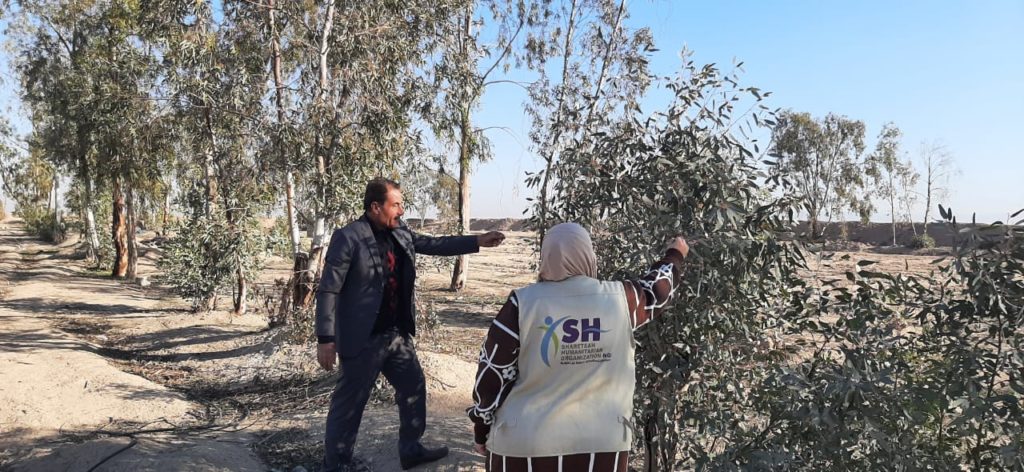
One of the village’s returning residents, Mr. Qasim Abdul Rahman Awli, was able to regain access to his land thanks to the efforts of FSD and SHO. After conducting an NTS on Mr. Awli’s property, the area was deemed a confirmed hazard area (CHA). From October 10-26, 2022, SHO’s team of female deminers cleared 15,347 square meters of land, safely removing 28 improvised mines.
As Mr. Awli recounted memories of his life in Hashterlok before ISIL’s arrival, he spoke of the fruitful orchards and wheat fields that provided for him and his family. Those prosperous days came to an abrupt halt when they were forced to flee, enduring difficult conditions during their displacement. Despite the joy of the village’s liberation in 2016, the lingering IED contamination and security concerns prevented a swift return.
Upon receiving clearance, Mr. Awli eagerly returned to his land and began the process of rehabilitation and cultivation. His story has inspired other families to follow suit, returning to their homes and fields in the sectors cleared by FSD and SHO in the Makhmour District.
Through the continued dedication and hard work of organizations like FSD and SHO, the people of Hashterlok and the surrounding areas are gradually reclaiming their homes, livelihoods, and futures, fostering socio-economic progress and community resurgence in northern Iraq.


